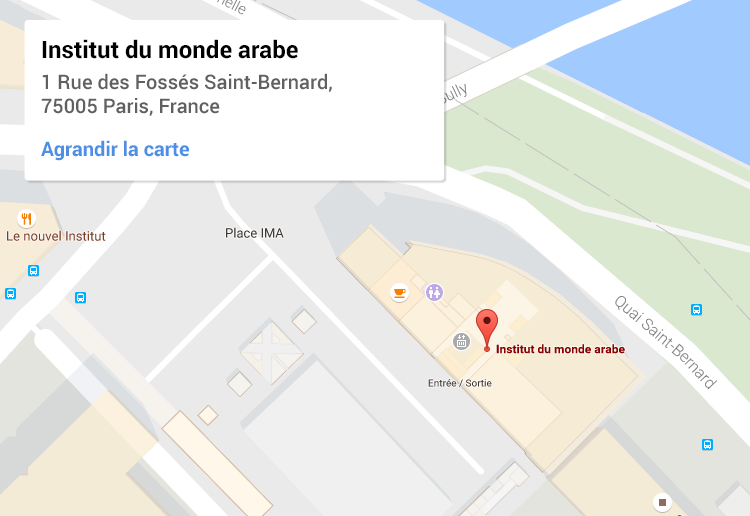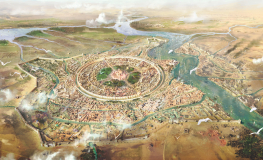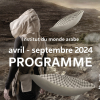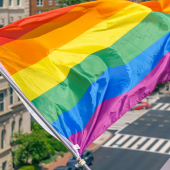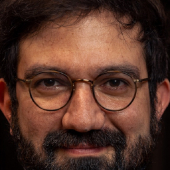Making revolution: Sudan's women at the forefront
- 5 February 2021
In 2018 and 2019, the Sudanese people rose for the 3rd time in their contemporary history. Their revolution led to the departure of Omar El-Bechir, who was ruling the country since his putsch in 1989.
In every corner of Sudan, demonstrators gathered and asked for dignity, freedom, peace and justice. The Sudanese revolution hence appeared as a powerful moment when people of Sudan, men and women, shared their hopes, beliefs and wishes for the country. Women in particular have played a key role in those demonstrations. Leading the protests, their voices have been heard within and outside of their country.
How did Sudanese women take part in this revolution? Could they be an example for future revolts and revolutions? What are the challenges facing Sudan’s transition and women rights today?
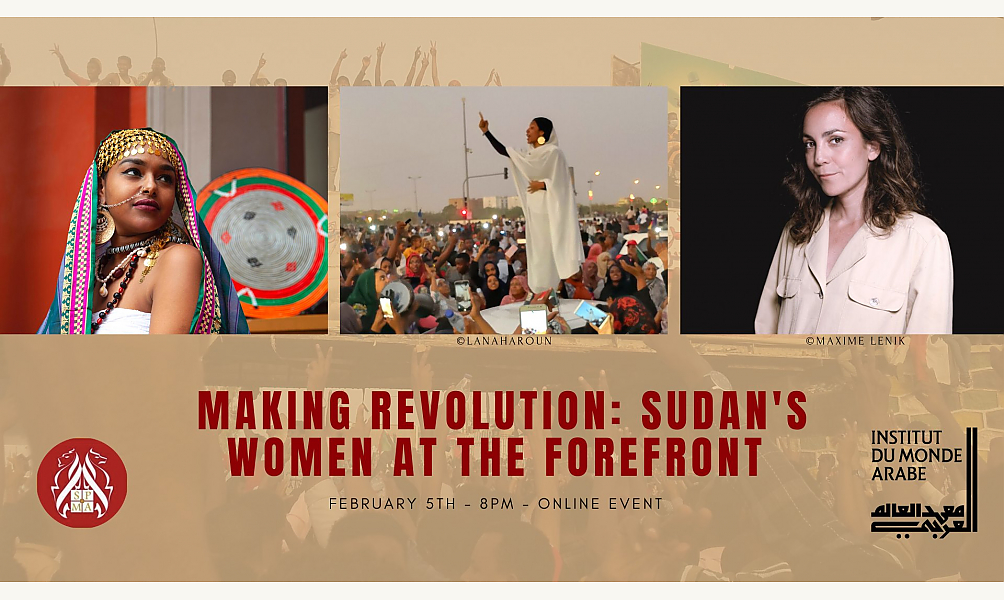
With :
Mayada Adil, activist, fashion designer
Hind Meddeb, film director
Alaa Salah, activist, member of MANSAM (Women of Sudanese Civic and Political Groups)
Moderated by :
Hamza Bensouda, student in the research school of Sciences Po Paris and representative of the Association Sciences Po Arab world
Chirine El Messiri, responsible for the book collection ARABORAMA (Institut du monde arabe/Seuil)
Biographies :
Mayada Adil, activist, fashion designer
Physician by profession, fashion designer by passion, Mayada Adil is a feminist from Sudan, living in Paris. She is currently a student at Sciences Po, Paris School of International Affairs, Master in Human Rights and Humanitarian Action. She founded Mayada’s brand, a fashion brand working in economic empowering projects for women living in vulnerable communities, internally displaced and refugees women in
Africa and Europe. Mayada represented Sudan in UNESCO Paris 2018 Africa Fashion Reception, and she was chosen to be the face of European Film Festival leading the movement to encourage the Sudanese women to celebrate their African Beauty, away from the world standards beauty. She successfully campaigned with Sudanese activists in Europe to stop the EU funding of the Janjweed militia. In June 2019, she performed an action with Hind Meddeb in Paris to condemn the raping of women by the Janjweed Militia during the sit-in in Khartoum in Darfur.
Hind Meddeb, film director
Hind Meddeb grew up inbetween France, Morocco and Tunisia (those two countries from where she is originally). In her documentary films, she observes the forms of resistance against the established order while filming on the side of those who are revolting. Between 2011 and 2013, during the Arab Spring, she directed two films: Tunisia Clash and Electro Chaabi, two feature-length documentaries on musical creation as a revolutionary act. Her last film, Paris Stalingrad, reconstitutes refugees’ journey in Paris, while harassed by the police and reduced to surviving in fortune camps around the Stalingrad metro station (selected at the 41st edition of the Toronto International Film Festival, within the “Cinéma du Réel” selection). During last spring, she started shooting a new film in Sudan, Our voices, our weapons, a portrait of a Sudanese Youth that is determined to conquer its freedom.
Alaa Salah, activist, member of MANSAM (Women of Sudanese Civic and Political Groups)
Alaa Salah is a Sudanese student and anti-government protester. She studies engineering and architecture at Sudan International University in Khartoum.
A picture of her taken by Lana Haroun during the Sudanese Revolution, referred to as “woman in white”, went viral on the social media in April 2019, and made her the icon of the Sudanese protest.
She is a member of MANSAM (Women of Sudanese Civic and Political Groups), an alliance of several women's political groups and civil society organizations, which was very active in the Sudanese Revolution. As a member of this group, Alaa Salah gave a speech at the 29 October 2019 meeting of the United Nations Security Council (UNSC), on the importance of women’s representation in the Sudanese political institutions. In addition to women's issues, she is very invested in educational issues, especially for young girls. She is currently writing a book about her experience in the Sudanese protest.
Inscription à la newsletter
Pour recevoir toute l'actualité de l'Institut du monde arabe sur les sujets qui vous intéressent
Je m'inscris
